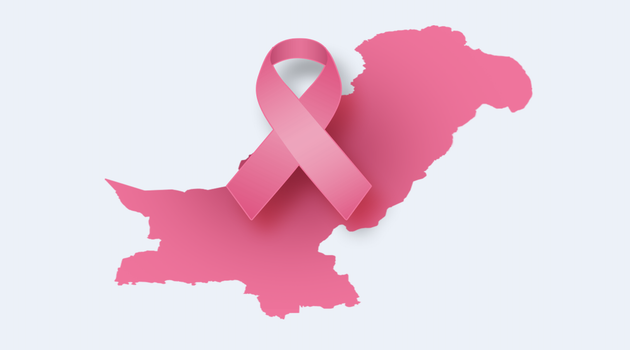
Breast Cancer is a topic that touches the lives of countless women in Pakistan and around the world. It is essential to spread awareness about this disease, its symptoms, and prevention, and share critical statistics specific to Pakistan. Here are some important things to remember regarding Breast Cancer this Pinktober, to protect yourself, and your loved ones.
Breast Cancer in Pakistan: The Statistics
Breast cancer is the most common cancer among women globally, and Pakistan is no exception. According to the Pakistan Medical Research Council (PMRC), Breast Cancer accounts for 38.5% of all cancers in Pakistan, making it the most prevalent form of cancer in the country. Unfortunately, the mortality rate is also high due to late-stage diagnoses and limited access to healthcare in some areas.
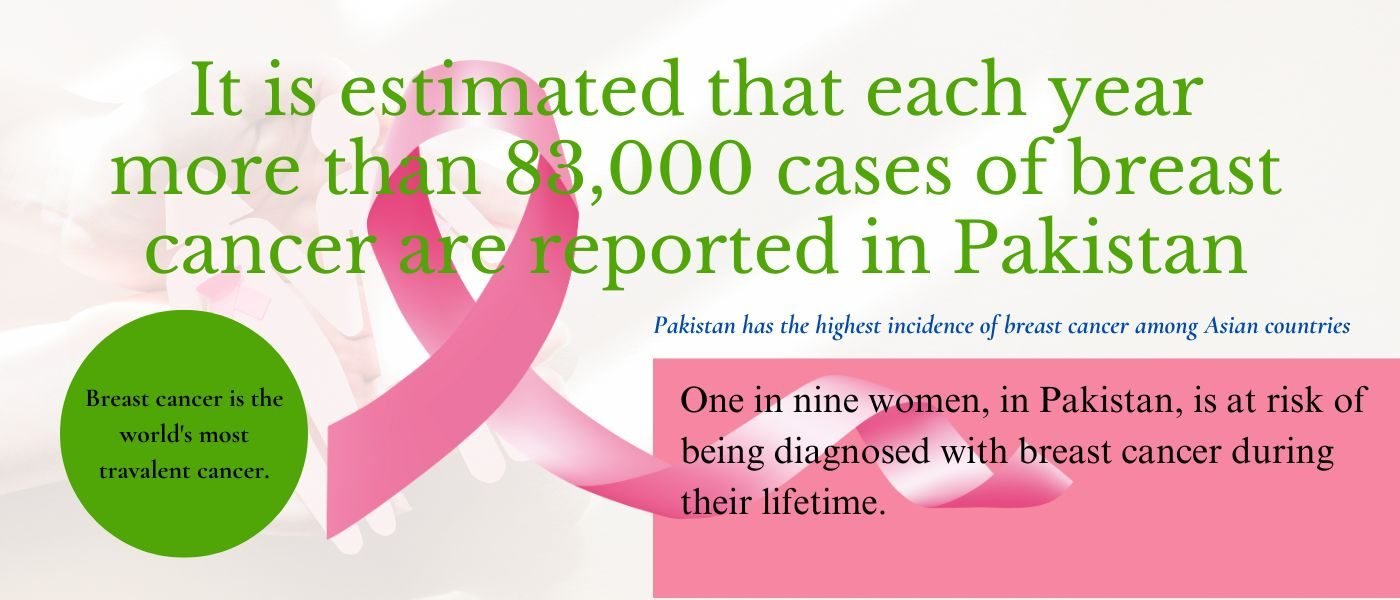
Symptoms of Breast Cancer
Early detection is the key to successfully treating breast cancer. Understanding the symptoms is crucial for women to identify any potential issues. Some common symptoms of breast cancer include:
Lump or Thickening: A noticeable lump or thickening in the breast or underarm area is one of the most common signs of breast cancer. It may be painless or painful.
Change in Breast Size or Shape: If one breast becomes noticeably larger or changes shape compared to the other, it should be examined.
Nipple Changes: Look for nipple discharge (other than breast milk), inversion, or changes in appearance, such as redness or scaliness.
Skin Changes: Changes in the texture of the breast’s skin, such as dimpling, puckering, or the appearance of an orange peel, should not be ignored.
Persistent Pain: While breast cancer is not always painful, persistent breast or chest pain should be evaluated by a healthcare professional.
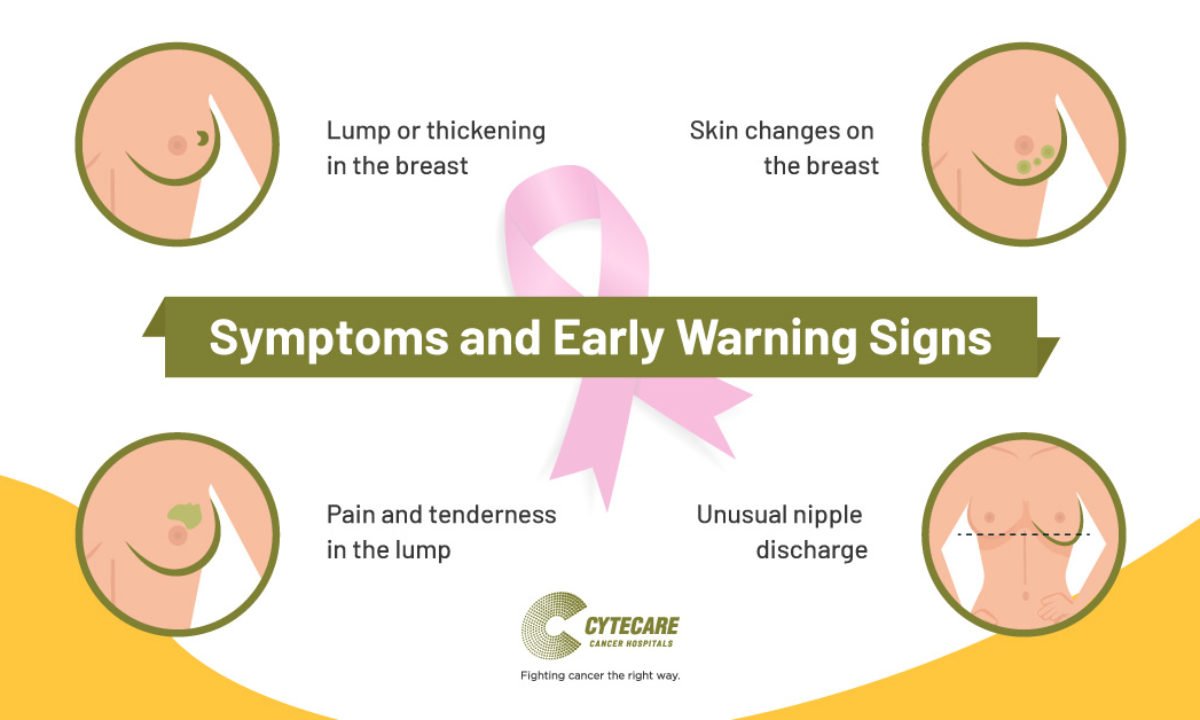
Remember to Pay Attention To Breast Rashes!
Inflammatory breast cancer is an aggressive cancer that shows up as a rash, with symptoms that include:
- Redness
- Swelling
- Pain and/or itchiness
- Severely enlarged pores on the breast
Doctors often misdiagnose inflammatory breast cancer as dermatitis (skin infection) or mastitis (breast tissue infection) because it looks like a rash.
Risk Factors of Breast Cancer
Breast cancer is a complex disease influenced by various risk factors. Understanding these factors is crucial for early detection and prevention. Here are some key risk factors associated with breast cancer:
Gender: Women are at significantly higher risk of developing breast cancer compared to men.
Age: The risk of breast cancer increases with age, with most cases occurring in women over 50.
Family History: Individuals with a family history of breast cancer, especially in first-degree relatives (mother, sister, or daughter), have an elevated risk.
Genetic Mutations: Inherited mutations in genes like BRCA1 and BRCA2 significantly increase the risk of breast cancer.
Personal History: Women who have previously had breast cancer are at higher risk for a second occurrence.
Radiation Exposure: Exposure to ionizing radiation, particularly at a young age, can increase the likelihood of breast cancer.
Hormone Replacement Therapy (HRT): Long-term use of combined hormone replacement therapy (estrogen and progesterone) for menopause symptoms may elevate the risk.
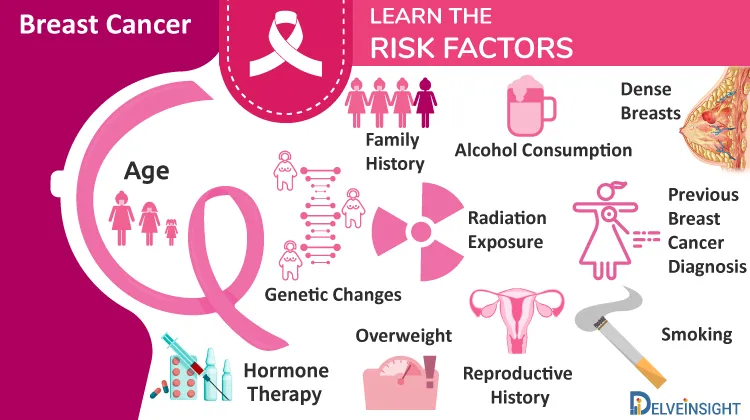
Early Menstruation and Late Menopause: Starting menstruation before age 12 or experiencing menopause after age 55 can increase the risk of breast cancer.
Reproductive Factors: Women who have never been pregnant or had their first full-term pregnancy after age 30 may have a higher risk.
Breast Density: Women with dense breast tissue may have an increased risk as dense breasts make it more challenging to detect changes on mammograms.
Alcohol Consumption: Consuming alcohol, even in moderate amounts, is associated with a higher risk of breast cancer.
Obesity: Being overweight or obese, especially after menopause, is a risk factor for breast cancer.
Physical Activity: Lack of regular physical activity is linked to an increased risk.
Diet: A diet high in saturated fats and low in fruits and vegetables may contribute to a higher risk.
Prevention and Tips
Prevention is a powerful tool in the fight against breast cancer. Here are some tips to reduce your risk:
Regular Self-Exams: Perform monthly breast self-exams to become familiar with your breast tissue and notice any changes promptly.
Clinical Breast Exams: Schedule regular clinical breast exams with your healthcare provider, especially if you have a family history of breast cancer or other risk factors.
Mammograms: Mammograms are crucial for early detection. Follow your healthcare provider’s recommendations for mammogram screenings based on your age and risk factors.
Healthy Lifestyle: Maintain a healthy weight, engage in regular physical activity, limit alcohol consumption, and avoid smoking.
Breastfeeding: If you have the opportunity, consider breastfeeding your baby, as it may help reduce the risk of breast cancer.
Know Your Family History: Be aware of your family’s medical history, as some genetic factors can increase the risk of breast cancer.
Stay Informed: Keep up with the latest research and guidelines on breast cancer prevention and screening.
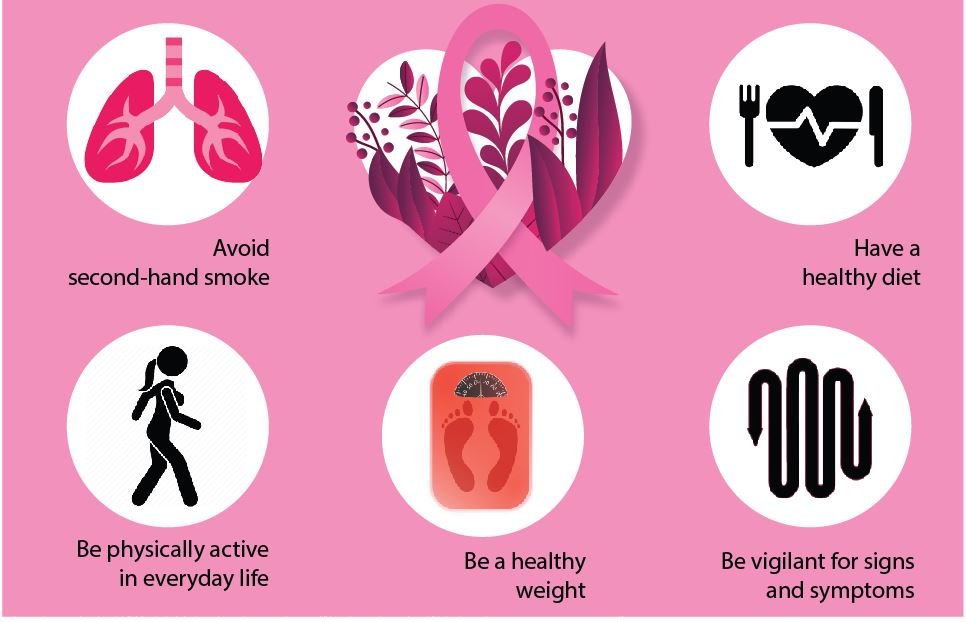
Raising Awareness in Pakistan: Awareness is key to reducing breast cancer mortality in Pakistan. Educational campaigns and community outreach programs are essential to reach women in both urban and rural areas. Women must be informed about the importance of early detection and where to seek medical help.
Additionally, there is a need for improved access to healthcare services and mammography facilities, especially in underserved regions of Pakistan. NGOs and government agencies must work together to address this issue.
Breast Cancer Awareness is a vital component of women’s health in Pakistan. By recognizing the symptoms, taking preventive measures, and staying informed about the latest developments in breast cancer research and treatment, women in Pakistan can empower themselves and their communities in the fight against this disease. It’s time to prioritize breast health and make a difference in the lives of Pakistani women!



